On August 15th…
More and more, I tend to read history. I often find it more up to date than the daily newspapers.
~Joe Murray
1843 – The Cathedral Basilica of Our Lady of Peace was consecrated and dedicated. It is the oldest existing building in the “downtown” area of the city of Honolulu, and is the oldest Roman Catholic cathedral in continuous use in the United States.

1914 – The Panama Canal was formally opened with the passage of the Panama Railway steamship SS Ancon. The United States spent almost $375 million (roughly equivalent to $8.6 billion today) to complete the project.
1914 – While renowned architect Frank Lloyd Wright was working in Chicago, Julian Carlton, a male servant who had been hired several months earlier, set fire to the living quarters of Wright’s Wisconsin home and murdered seven people with an axe as the fire burned. Carlton swallowed hydrochloric acid immediately following the attack in an attempt to kill himself. He survived but died from starvation seven weeks after the attack.

1930 – President Herbert Hoover announced plans for relief of individuals and businesses affected by a series of devastating droughts. The droughts, combined with a major stock market crash in October 1929, resulted in dire economic conditions in the country that lasted throughout the early to mid-1930s, an era known as the “Great Depression.”
Hoover called for a mass mobilization of aid workers in response to the drought; asked state governors to organize committees to draft suggestions on how to aid the unemployed; and tasked the Red Cross with getting immediate aid to impoverished families. He asked the War Department to provide artillery range land to Montana cattle and sheep farmers for grazing. He also proposed a plan that Franklin Roosevelt would later expand upon: increasing federal money to drought-stricken areas to begin road-building programs for unemployed workers.
Hoover’s primarily state-led relief plan was not enough. As economic conditions worsened over the next two years, growing numbers of Americans plunged into poverty. Hoover and his wife were criticized for maintaining a lavish lifestyle in the White House. This perceived lack of concern on the part of the president for his fellow citizens, combined with his reluctance to implement government spending relief programs, resulted in his re-election defeat in 1932.
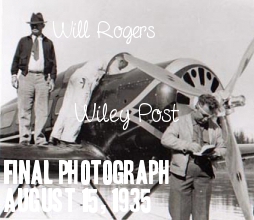
1935 – Humorist Will Rogers and aviator Wiley Post were killed when their airplane crashed near Point Barrow, Alaska. They were a few miles from Point Barrow when they became uncertain of their position in bad weather and landed in a lagoon to gather information. On takeoff, the engine failed at low altitude and the airplane plunged into the lagoon, shearing off the right wing and landed upside down in the water. Both men died instantly.
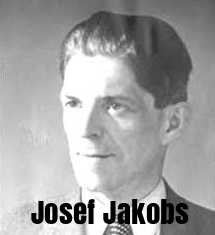
1941 – Corporal Josef Jakobs, a German spy who had parachuted into England and later been convicted under the Treachery Act of 1940, was executed at the Tower of London. In deference to his being a soldier, he was allowed shooting by firing squad rather than the civilian method of hanging He was the last person to be executed at the Tower for espionage.
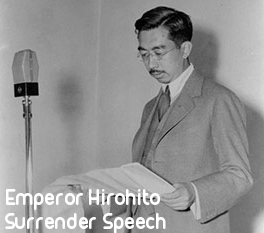
1945 – Following the bombing of Hiroshima and Nagasaki, Japanese Emperor Hirohito publicly announced that the Japanese government had accepted the Potsdam Declaration demanding the unconditional surrender of the Japanese military.
In his speech – which had been recorded a day earlier – Hirohito noted “the enemy has begun to employ a new and most cruel bomb, the power of which to do damage is, indeed, incalculable, taking the toll of many innocent lives. Should we continue to fight, not only would it result in an ultimate collapse and obliteration of the Japanese nation, but also it would lead to the total extinction of human civilization.”
Finally, and most famously, he said: “However, it is according to the dictates of time and fate that we have resolved to pave the way for a grand peace for all the generations to come by enduring the unendurable and suffering what is insufferable.”
The surrender was formally signed on September 2 on board the USS Missouri.
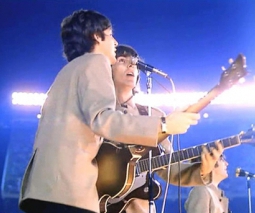
1965 – The Beatles’ record-breaking first performance at New York’s Shea Stadium was watched by 55,600 fans. The 12-song, 30-minute concert set a (then) world record for attendance figures, and also for gross revenue. The Beatles pocketed $160,000 of the $304,000 box office sales.
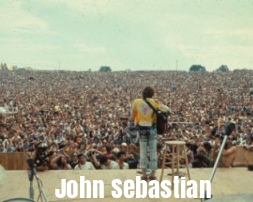
1969 – The three-day Woodstock Music Festival opened on a patch of farmland in White Lake, a hamlet in the upstate New York town of Bethel.
Promoters John Roberts, Joel Rosenman, Artie Kornfield and Michael Lang originally planned on holding the event in Woodstock or the nearby town of Wallkill, but when both towns denied permission to host the event, dairy farmer Max Yasgur came to the rescue at the last minute, giving the promoters access to his 600 acres of land in Bethel, some 50 miles from Woodstock.
Despite their relative inexperience, the young promoters managed to sign a roster of top acts, including the Jefferson Airplane, The Who, Grateful Dead, Sly & The Family Stone, Janis Joplin, Jimi Hendrix, Creedence Clearwater Revival and many more.
Somewhat improbably, the chaotic gathering of half a million young people lived up to its billing of “Three Days of Peace and Music”. There were surprisingly few incidents of violence on the overcrowded grounds and the festival still stands for many as an example of America’s 1960s youth counterculture at its best.
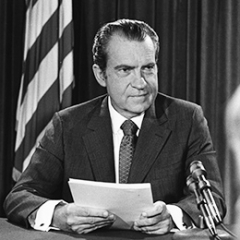
1971 – In addition to announcing a 90-day freeze on wages, prices and rents, president Richard Nixon completed the break from the gold standard by ending convertibility of the United States dollar into gold by foreign investors.
While Nixon’s actions did not formally abolish the existing Bretton Woods system of international financial exchange, the suspension of one of its key components effectively rendered the system inoperative. Nixon publicly stated his intention to resume direct convertibility of the dollar after reforms to the system had been implemented, but all attempts at reform proved unsuccessful.
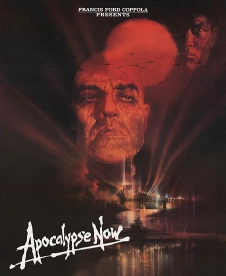
1979 – Apocalypse Now, starring Martin Sheen, Marlon Brando, Robert Duvall and Dennis Hopper, premiered in theaters around the United States. The film became a commercial success and won two Academy Awards (Best Cinematography and Best Sound). It received six other Oscar nominations, including Best Director, Best Picture and Best Supporting Actor (Duvall).
Compiled by Ray Lemire ©2016 RayLemire.com. All Rights Reserved.
You may not reproduce, record, publish, republish, post, transmit, publicly display, publicly exhibit or distribute any articles or photographs on RayLemire.com without obtaining the express written consent of the Operator.